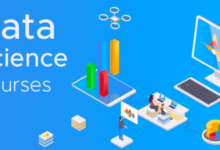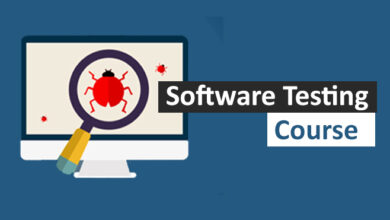
The Complete Guide That Makes Improving Your Reading Skills Simple
Did you know that the average person can read between two hundred and three hundred words per minute?
Regardless of how fast or slow of a reader you are, it is always possible to improve your reading skills. This will help you to absorb more information in less time.
You will also get better at grasping the deeper meanings behind the words that you read. The problem is that it can be challenging to know what steps to take if you want to boost your reading speed.
We’ve written a guide to help you out. Read on to find out more.
Table of Contents
The Basics of Reading Comprehension
Reading comprehension is the ability to make sense of what you read.
There are various literacy skills that you’ll need to master in order to increase your reading comprehension.
This includes learning new vocabulary, increasing fluency, and picking up on contextual clues. Those who master these skills will be able to identify a text’s key features and components.
The more often that you read, the better your reading comprehension will become.
Here are some of the most important skills that you will need to master if you want to quickly increase your reading comprehension.
Decoding
This is a skill that depends on your ability to work through words you’ve heard people say but have never seen written down.
You’ll need to develop phonemic awareness, which involves listening for individual sounds within words and associating these sounds with letters.
To become better at decoding, focus on drawing connections between groups of letters and the sounds that they make. This is the first step that you’ll need to take to start “sounding out” words.
Those who are skilled at decoding language are able to quickly identify common homophones, which are words that have similar sounds but different meanings.
Several of the most common homophones are your/you’re and there/their/they’re.
You will increase your reading speed once you get better at decoding language because you’ll understand the differences between homophones.
Fluency
There are many factors that fluency refers to. Most importantly, it relates to how skilled you are at reading with flow.
Those who are fluent are able to quickly make sense of new vocabulary while they are reading. This means that they don’t need to stop to think when they come across new words and phrases in a text.
Vocabulary
Once you become skilled at figuring out the meaning of new words, you’ll begin to quickly increase your reading comprehension.
This is because you will be able to come up with new meanings and recognize relationships between familiar terms and new vocabulary.
Instead of now understanding the meaning of a difficult passage or phrase, you’ll be able to make assumptions, formulate ideas, and draw conclusions that are based on contextual clues.
Inference
Making inferences involves connecting information from texts to your own concepts and ideas. This is a skill that helps people to make meaning from what they read.
For example, when you are reading a blog post about cutting-edge green solar panel technologies, you might make an inference that to decrease your carbon footprint you should install solar panels on your home.
You need to make inferences when the text you read does not implicitly explain the meaning of a certain phrase or concept.
By getting better at making inferences, you’ll also improve your retention.
Retention
This relates to remembering the main ideas of what you read. You can improve your retention by getting into the habit of summarizing the main ideas of a text after you’re done reading it.
Improving Your Reading at Work
Those who have great reading skills are able to read, understand, interpret, and decode the written word.
By improving your reading skills you will be able to assimilate and respond to written messages such as emails and letters while you are at work. This means that you will improve your workplace performance.
You’ll also be able to improve your own writing abilities. You’ll develop better literacy skills such as comprehension, language fluency, vocabulary, and critical thinking skills.
This means that there will be fewer miscommunications between you and your colleagues.
Fast Reading: Tips for Improving Your Reading Skills
There are lots of ways to get better at reading. You can focus on reading types of books with lots of technical information to increase your vocabulary and comprehension.
Here are some of the most important steps to take to become a better reader.
Developing Accurate Reading Skills: Focus on Pre Reading
Be sure that you understand what kind of text you are going to be reading. Is it information-based such as a newspaper, trade magazine, textbook, or product assembly manual? Or is it more creative such as a book of poems, a novel, or a short story?
If you are reading with the intention of following instructions, it will be necessary for you to make sense of the exact meaning of every step. This is something you will need to do if you’re reading a recipe or a product manual.
On the other hand, if you are going to read a book that is packed with information such as a textbook, it will be necessary for you to pay attention to new concepts and information that you don’t yet understand.
You’ll also need to figure out what your purpose is for reading a certain text.
For example, there is a difference between reading from a textbook for your science class and reading a novel for pleasure.
There are certain concepts that you’ll need to understand when you read from a textbook.
All you need to do to decide on the purpose of what you’re reading is take a moment to ask yourself “what am I reading for?” before you start reading a text.
Also, make sure that you scan your reading before you begin. Pay attention to the work’s structure and how it presents information. You’ll want to look at the title, table of contents, and the different sections.
Set Aside a Few Moments Every Day to Read
Try setting reading goals for yourself. This is a great thing to do if you want to improve your vocabulary, understand the main ideas presented in difficult texts, and draw connections between your perspectives and what you read.
For example, you could create a goal of learning the meanings of new words that you come across that relate to a topic that you are interested in such as marketing, stock trading, or technology.
Whenever you see a word that you don’t know the meaning of, take a moment to write this word down. Once you’ve finished reading, look these words up in your dictionary.
You will quickly become a better reader if you practice for at least fifteen minutes per day. Read what you are interested in. And don’t forget to reread texts that are difficult to understand.
Learn New Vocabulary by Reading Intensively
If your goal is to learn new vocabulary, it is a good idea to read intensively. This is a type of reading that involves paying more attention to certain details than what you are reading.
It is necessary to read more slowly if you’d like to expand your vocabulary, study grammar, and improve your pronunciation.
Don’t worry about understanding a topic with depth when you are intensively reading. Instead, attempt to grasp the general meaning. This will make it easier for you to pay attention to pronunciation, sentence flow, and spelling.
If there is something that you don’t understand when you’re intensively reading, don’t stop. Try your best to summarize the main idea and then continue reading.
Try to stay engaged by reading out loud. This is because you’ll see the words with your eyes and hear the words with your ears.
It is essential to read books and articles out loud if you are trying to practice pronunciation.
Every time that you come across new words, try to figure out their meaning without reaching for a dictionary. You can do this by paying attention to contextual clues.
If you do not feel confident that you understand the meaning of certain words, write them down. You can look these words up in the dictionary once you’ve finished reading.
You can start increasing the difficulty level of the texts you choose to read once you start understanding higher-level phrases and words.
Read Extensively to Increase Comprehension
This technique is about focusing on the overall picture of what you are reading. It is a good idea to practice extensive reading if you are studying for school, reading a newspaper, or if you are reading a nonfiction book.
Don’t be afraid to take lots of notes when you are reading extensively. This will help you to become a more active reader.
Consider creating a section in your notebook for taking notes. Make bullet points every time that you come across a main idea.
It is also a great idea to write out important terms and dates. Whenever you encounter a section that you don’t understand, jot down the questions you have so that you will be able to come back to them later on.
If it is possible to mark up the text that you are reading, you should annotate your reading. It’s helpful to underline passages that are hard to understand.
You can also highlight key concepts and write notes in the margins.
Once you’ve finished reading a text, stop and review what you’ve learned by summarizing the text.
If you are reading a larger text that takes several days to complete, stop every few minutes to explain the main ideas in your own words. Consider writing these ideas in your notebook.
Reread any sections that you don’t know how to summarize.
Learn How to Stay Focused
It is much easier to read through a difficult text if you are not doing it alone. If you are a student, it is a good idea to find a reading buddy who has a similar school curriculum as you do.
You and your reading buddy can read through the same section of a book or article and then talk about what you’ve read. This will help you to make sure that you are picking up the important ideas.
You can push yourself by pairing up with a reading buddy who is a better reader than you. Listen to your buddy’s pronunciation when they read. And ask for their feedback after you take your turn to read a passage.
You can become a more focused reader by selecting the right environment for reading. Read in a quiet area that is well-lit and comfortable. Always turn off the television and turn your phone on airplane mode.
And don’t forget to keep track of your progress. You can do this by creating a list of articles or books that you have read.
Every time that you finish reading, consider writing down the date and how you feel about your reading progress. This will help you to keep track of what you are learning.
Start Improving Your Reading Skills Today
If you want to improve your reading skills, it is important to understand the basics of reading comprehension. It is also a good idea to focus on becoming a faster reader by pre-reading and learning new vocabulary.
If you want to find out more about what it takes to be a great reader, don’t forget to check out the Education section of our website.








